Five hotels getting sustainability right
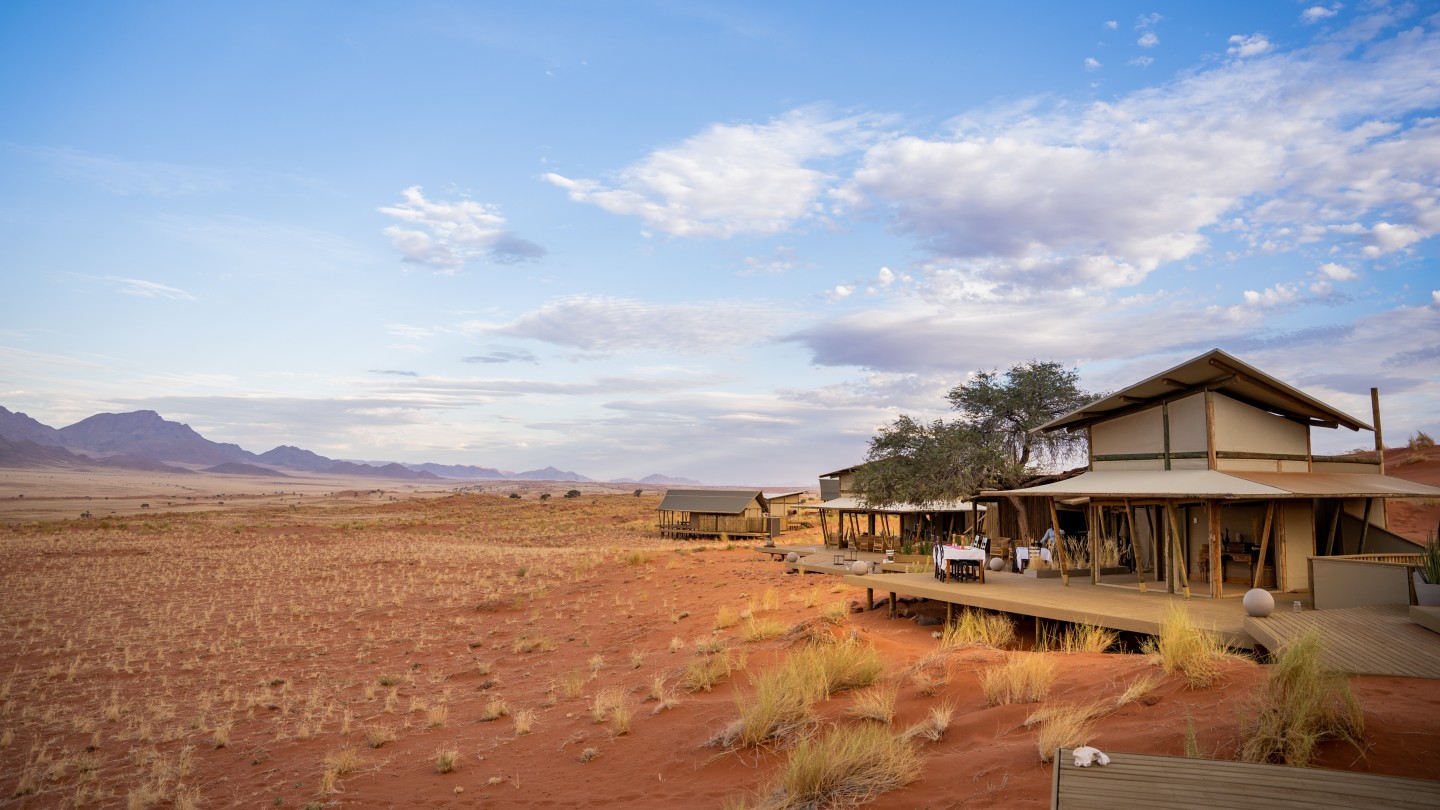
Roula Khalaf, Editor of the FT, selects her favourite stories in this weekly newsletter.
A new standard in Mayfair
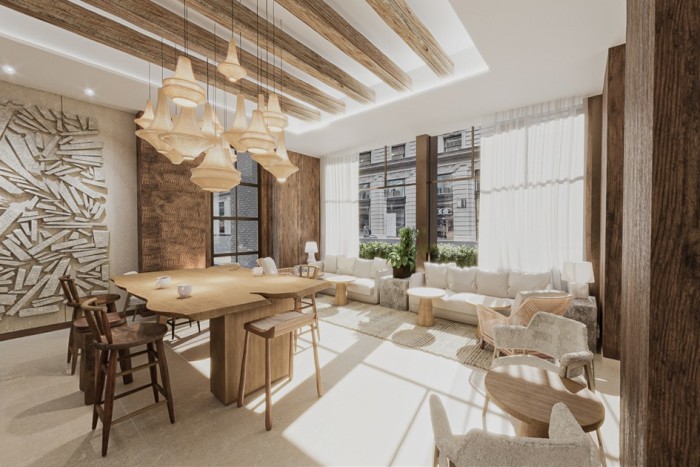
Sustainability in the centre of London is always a compelling sell. When it’s real, and sets a standard, even better. Such is the proposition made by 1 Hotel Mayfair, which will open its doors on central London’s Berkeley Street in July. The first European address for the 1 Hotels brand, which Starwood Capital launched in 2015 in Miami’s South Beach and New York, comes through not just with the (quantifiable) eco creds, but also with what sounds like very promising design and wellness. The company has repurposed an existing building, retrofitting its 181 rooms and suites into an 80 per cent original structure retention, minimising the carbon output of a major reconstruction (to the tune, they maintain, of about 4,200 tonnes).
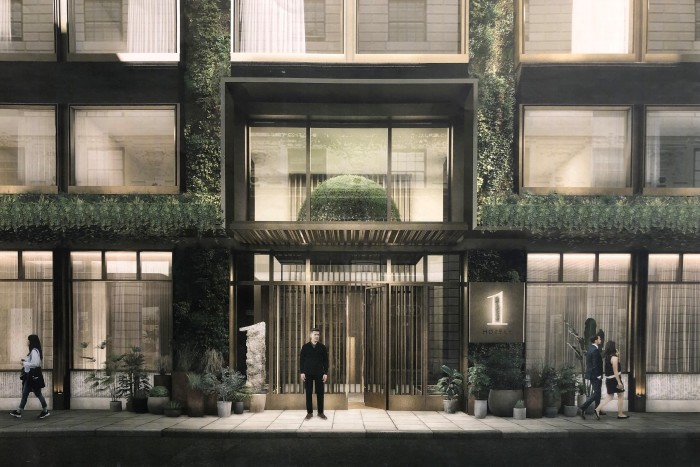
Sustainable materials have been used throughout, from reclaimed metal floor tiles to timber floors sawed from naturally fallen trees on the Windsor Estate. This plus solar panels and green living walls (including moss ones in some of the rooms) make it one of the most sustainable reuse structures in Mayfair. There’s also a full-service Bamford Wellness Spa and a restaurant, Dovetale, manned by the two-Michelin-starred Tom Sellers, who after stints with René Redzepi and Thomas Keller opened his London eatery, Restaurant Story, to great acclaim in 2013. 1hotels.com, from £800
How to preserve it in Namibia
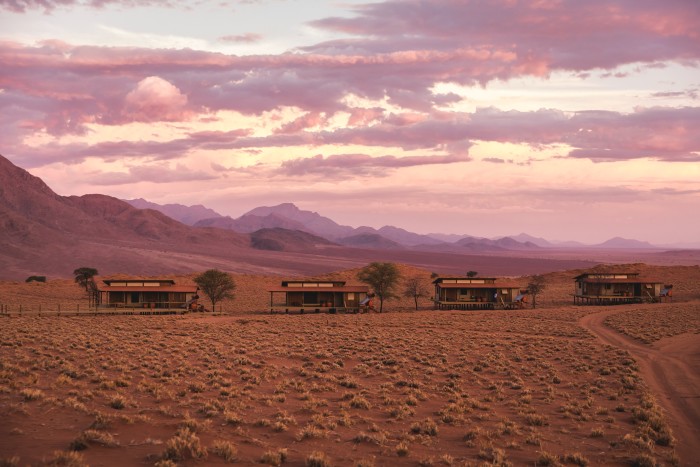
Namibia expands minds and steals hearts. From the eerie oceans of dunes on the Skeleton Coast to the otherworldly desert-scapes of Sossusvlei, it’s the kind of place that hammers home the need to protect the world’s empty places. In the middle of one of its great empties is Wolwedans, a small portfolio of camps scattered in various locales around the NamibRand Nature Reserve in the country’s southwest; clocking in at more than 425,000 acres, it’s one of southern Africa’s largest not-for-profit private reserves.
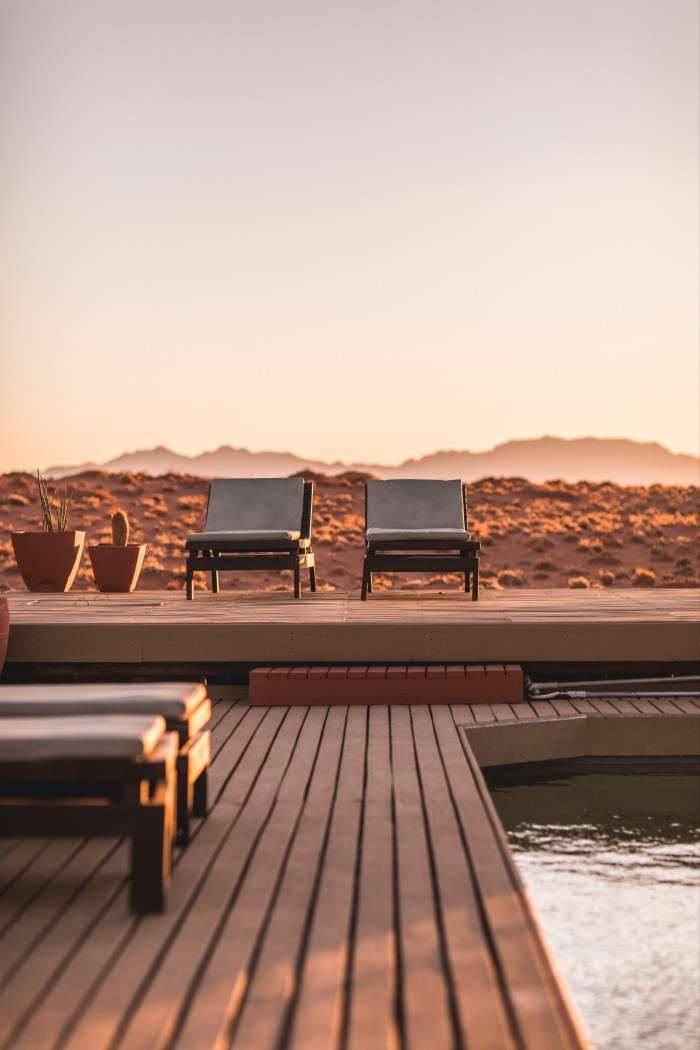
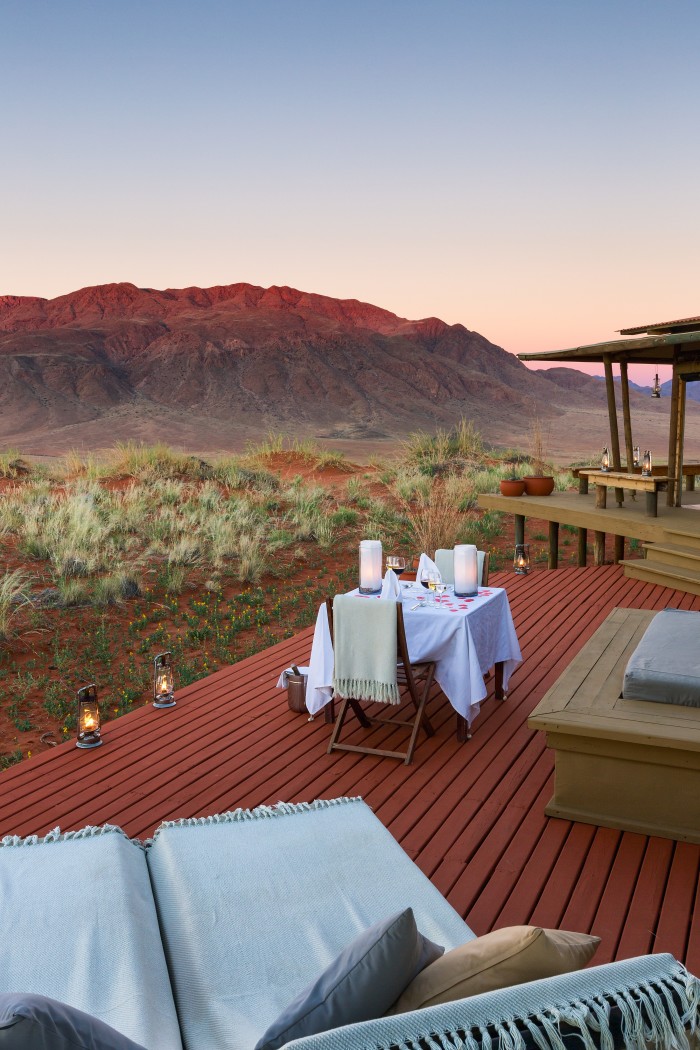
The purpose of the business, since opening over 15 years ago, has always been to subsidise and support the Reserve’s financial viability, through education, animal and wilderness management, and funding local SMEs (small and medium enterprises) to create opportunities for local communities. And the camps? Look to Dune Camp: lo-fi, low-impact, plank floors and canvas walls, and waking to the rising sun pouring across mile after empty mile of sand. wolwedans.com, from about £470 per person per night in high season (April-November)
Urban greening in the heart of Singapore
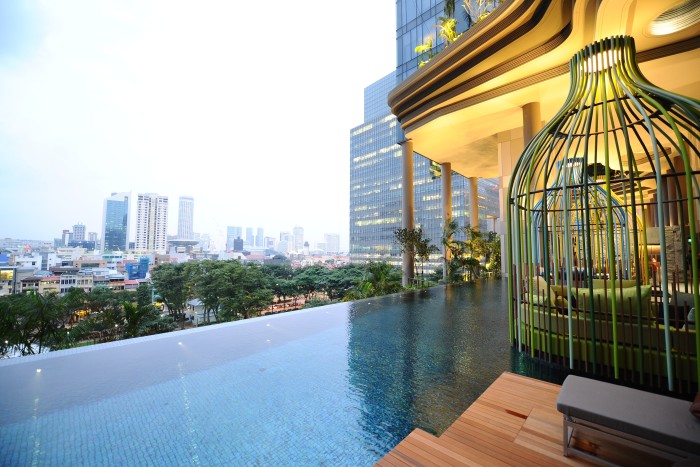
It’s an eye-catcher at the edge of Singapore’s central business district, soaring skyward as verdant and lush as the park on which it stands. Not for nothing did the ParkRoyal Collection Pickering win the “World’s Leading Green City Hotel” kudos at the 2019 World Travel Awards. Besides the massive vertical garden that covers its 16-storey façade and terraces – comprising about 50 species, many of them SE-Asia native, across 15,000sq m (it absorbs heat, shades hard surfaces and improves air quality around the hotel via evaporative transpiration) – there are more than 250 solar panels generating power, electric vehicle charging stations, recycled composite granite in all the bathrooms, and waste-to-greywater conversion in all the cafés and restaurants (as well as lots of planet-friendly meat-free dishes on all the menus).
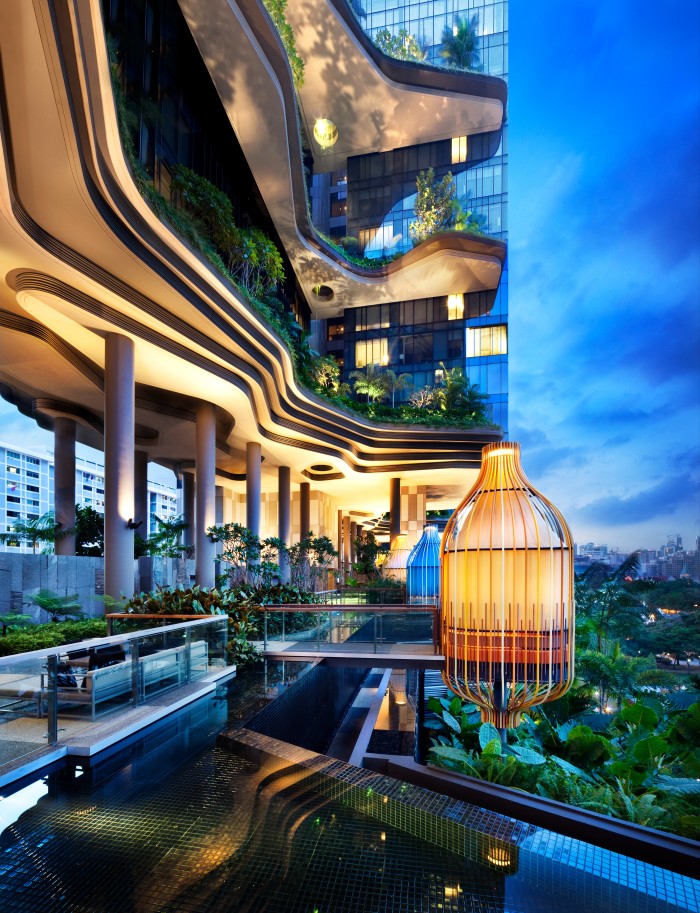
Even the wedding and corporate events offerings include plant-based banquets and recycled stationery to help companies be more green. The rooms are airy, modern and pretty, with light wood-wainscoted walls and huge windows (that open onto gardens; what a joy in a dense city). panpacific.com, from S$420 (about £250)
Keeping it real in Costa Rica
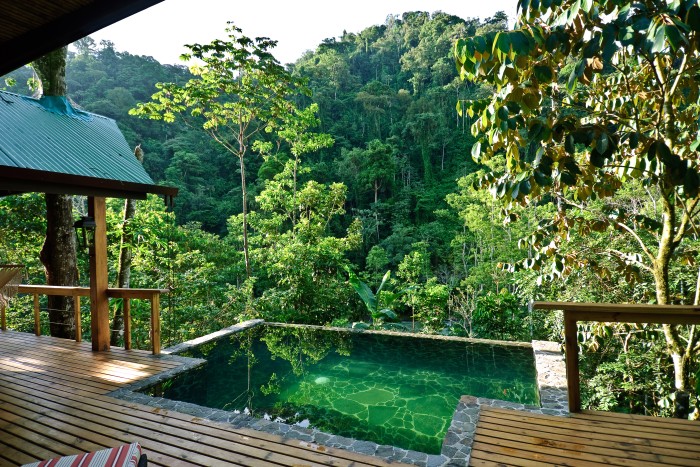
Pacuare Lodge has been operating in Costa Rica’s Limón province since the mid-1990s, and was one of the first lodges to make conservation statements outside the bounds of the hotel as well as in its daily operations. It began buying up parcels of primary native forest solely for the purpose of conserving them (the emerging wisdom being that protecting old-growth forest is as effective in carbon reduction as planting new forest, if not more so, in some parts of the world). To date, 840 acres are totally gazetted, off limits even to lodge guests – enough to offset the output of the lodge’s carbon fuel-using vehicles.
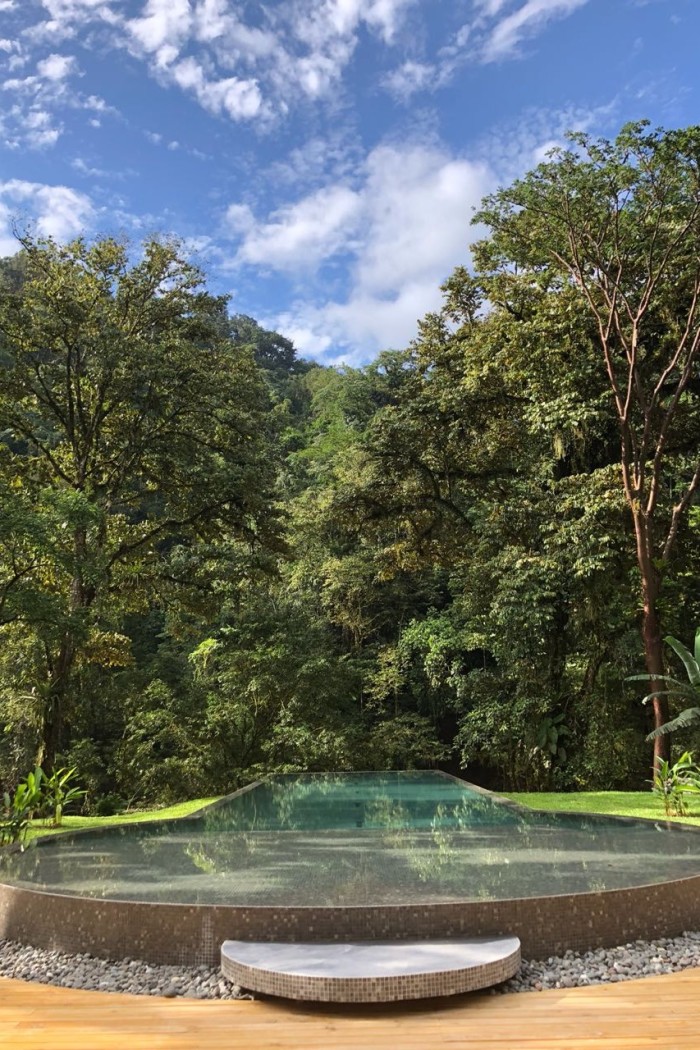
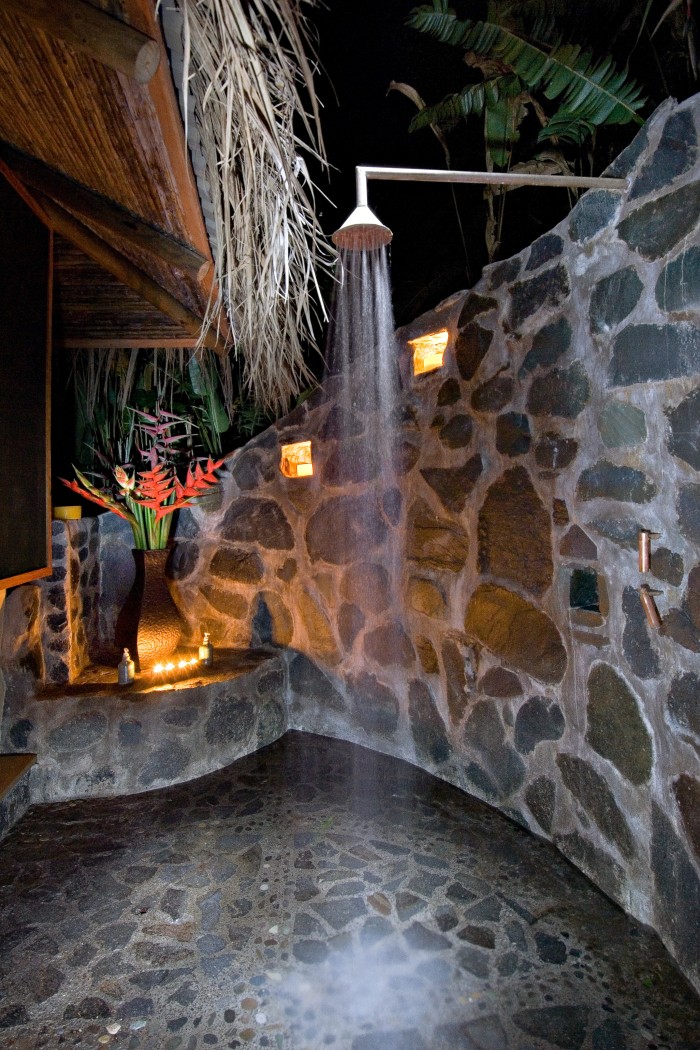
Most lodge vehicles, though, are electric, and energy across the property is entirely generated by solar panels and hydroelectric turbines. For the lovers of nature’s elusive megafauna, there’s an added fillip to a staying here: knowing your dollar goes to partially underwriting the National University’s Jaguar Program, which protects the charismatic cat’s habitat – and has identified five resident jaguars in and around the Lodge’s private reserve. pacuarelodge.com, from $1,328 for minimum two-night stay, including airport transfers, full board and daily yoga and one adventure experience
Rewilding the outback, one “safari” at a time
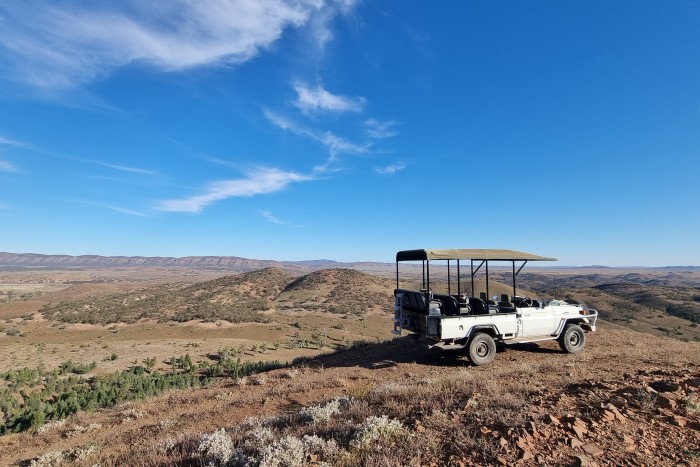
Australia majors in writ-large landscapes; at Arkaba Conservancy, a far-sighted team has established an innovative model that’s helping ensure the protection of 60,000 acres of the Ikara-Flinders Ranges, in South Australia, which is one of the country’s loveliest. Arkaba is a famous name in the increasingly crowded category of luxury sustainable lodges for a reason. Several, actually: there’s the success of its comprehensive rewilding project, which has seen previously fenced land de-stocked of its thousands of sheep and slowly restored to wilderness.
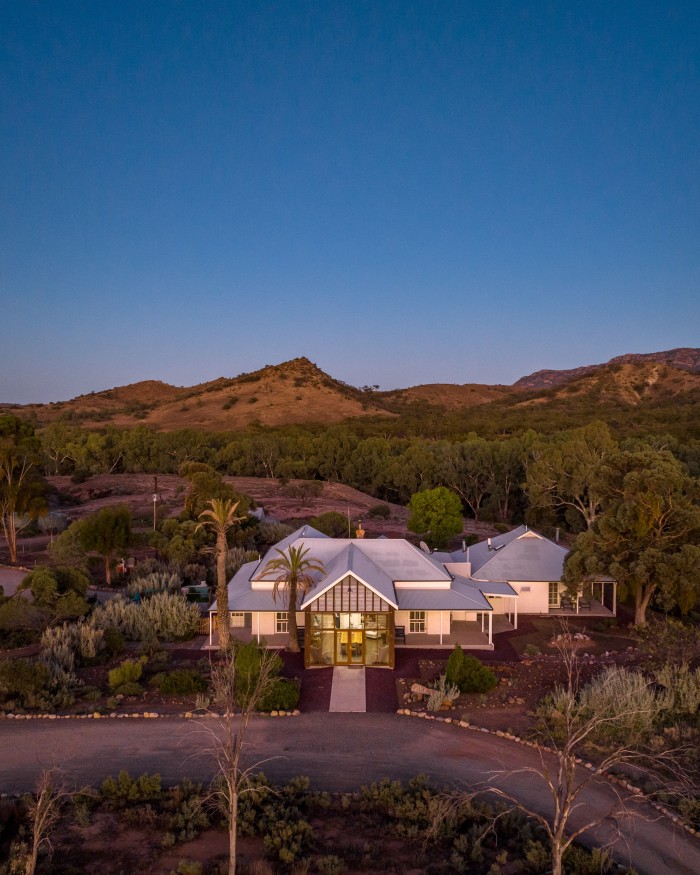
There’s the lovely original homestead (c1851) where guests sleep, whose five bedrooms have been configured each to have a section of private veranda. The eating and drinking, as one might expect, are excellent – made even better on occasion by the likes of Sydney star chef Christine Manfield leading three-day culinary “outback safaris” that are glorious inductions into indigenous produce and south Australian wines; the next one’s at the end of May. And there is the uniform excellence of its guides, who open up natural worlds to marvel at on evening drives, creek walks and ad-hoc geology lessons. arkabaconservancy.com, from A$1,230 (about £670) per person per night full-board, minimum two-night stay, including twice-daily safari experiences and conservation levies
Comments